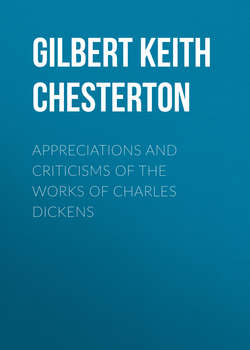Читать книгу Appreciations and Criticisms of the Works of Charles Dickens - Гилберт Честертон, Gilbert Keith Chesterton, Лорд Дансени - Страница 3
INTRODUCTION
REPRINTED PIECES
ОглавлениеThe three articles on Sunday of which I speak are almost the last expression of an articulate sort in English literature of the ancient and existing morality of the English people. It is always asserted that Puritanism came in with the seventeenth century and thoroughly soaked and absorbed the English. We are now, it is constantly said, an incurably Puritanic people. Personally, I have my doubts about this. I shall not refuse to admit to the Puritans that they conquered and crushed the English people; but I do not think that they ever transformed it. My doubt is chiefly derived from three historical facts. First, that England was never so richly and recognisably English as in the Shakespearian age before the Puritan had appeared. Second, that ever since he did appear there has been a long unbroken line of brilliant and typical Englishmen who belonged to the Shakespearian and not the Puritanic tradition; Dryden, Johnson, Wilkes, Fox, Nelson, were hardly Puritans. And third, that the real rise of a new, cold, and illiberal morality in these matters seems to me to have occurred in the time of Queen Victoria, and not of Queen Elizabeth. All things considered, it is likely that future historians will say that the Puritans first really triumphed in the twentieth century, and that Dickens was the last cry of Merry England.
And about these additional, miscellaneous, and even inferior works of Dickens there is, moreover, another use and fascination which all Dickensians will understand; which, after a manner, is not for the profane. All who love Dickens have a strange sense that he is really inexhaustible. It is this fantastic infinity that divides him even from the strongest and healthiest romantic artists of a later day – from Stevenson, for example. I have read Treasure Island twenty times; nevertheless I know it. But I do not really feel as if I knew all Pickwick; I have not so much read it twenty times as read in it a million times; and it almost seemed as if I always read something new. We of the true faith look at each other and understand; yes, our master was a magician. I believe the books are alive; I believe that leaves still grow in them, as leaves grow on the trees. I believe that this fairy library flourishes and increases like a fairy forest: but the world is listening to us, and we will put our hand upon our mouth.
